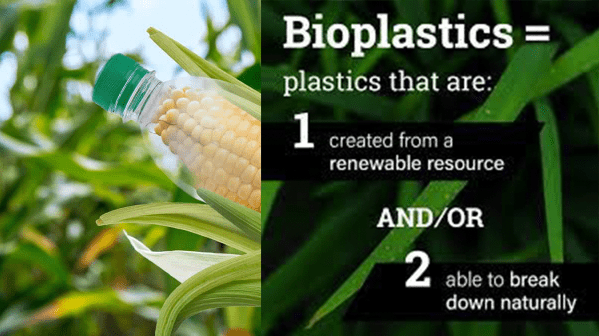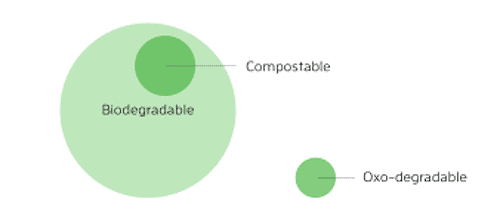Hailed as an environmentally-friendly alternative, bioplastic has been widely adopted by brands, but are we failing to address the real problem?
We are in the midst of a global plastic crisis. With an estimated 90.5% of the plastic waste we produce having never been recycled, we are drowning in a deluge of packaging, cutlery, carrier bags, coffee cups and bottles, and yet manufacturers continue to produce more.
The European Parliament has voted to ban single-use plastics by 2021 and public awareness around the issue is at an all time high, with a recent study by ThoughtWorks revealing that reducing plastic packaging waste and increasing recyclability was a higher priority than product pricing for UK consumers in the decade ahead.
Brands, too, are eager to demonstrate they are taking positive action. They are championing plastic alternatives that are ‘eco-friendly’, ‘biodegradable’ or ‘compostable’ to cater to consumers’ desire for more sustainable products. Cutlery, bags, plates and packaging made from bioplastics are increasingly being adopted by retailers, yet these products aren’t always as virtuous as they appear. Vague labelling and unclear recycling practices are misleading well-intentioned consumers, often with detrimental effects.
‘Cutlery, bags and packaging made from bioplastics are being adopted by retailers, yet these products aren’t always as virtuous as they appear’
Recent research from the University of Plymouth’s International Marine Litter Research Unit found that carrier bags labelled as ‘biodegradable’ were still fully intact after three years left in the sea or buried in soil, with several examples still capable of carrying items of shopping. These findings raise the question: should bioplastic really be proposed as a viable alternative if the degradation rates are so slow that they still contribute to plastic pollution?
The problem is, many brands are shifting to use bioplastic without fully understanding their impact; for example, the carbon footprint of the supply chain or where the product will ultimately end up. Bio-based plastics are designed to be disposed of and broken down in an industrial environment separate to other plastics, but many local authorities don’t have the recycling infrastructure to support this. As a result, they are simply disposed of in the same way as regular plastic, therefore creating additional waste.
Greenwashing products like bioplastic as being eco-friendly or biodegradable may be good for a brand’s environmental PR, but it falsely lures consumers into having a clear conscience. They may envisage their coffee cup rapidly disintegrating back into organic matter, but in most instances this isn’t the case.
‘Bio-based plastics are placating customers with a guilt-free quick fix while increasing general waste volume and costs,’ notes Paul Jackson, editor of Recycling and Waste World. ‘It’s sidestepping the urgent issue: the nine billion tonnes of plastic already in existence.’
The widespread use of bioplastics is also fostering an open loop-system in which new resources are continually required to create more of these materials. Most bioplastics are made from carbohydrate-rich plants like corn, sugarcane or sugar beet, driving demand and concern for the world’s finite amount of arable land. The Green Alliance has voiced its concerns that as demand for bioplastics increase, deforestation will escalate because we will struggle to provide enough crops for these materials, let alone that required for biofuels and feeding our burgeoning population.
One interesting solution is proposed by Marco Federico Cagnoni in a project he calls Plastic Culture. The vertical farming concept focuses on growing plants suited to bioplastic production, while still offering ample edible produce. The designer discovered that dandelions and black salsify – both highly nutritious – also naturally contain high quantities of latex, therefore creating a more economical system for the production of both food and bioplastic.
While it should be acknowledged that bioplastics are an admirable attempt to reduce our reliance on oil-based materials, brands must be careful not to jump on the bandwagon and pose these materials as a miraculous solution to our plastic problem without considering their complete life cycle. Currently, the infrastructure in place cannot support their degradation and so, by continuing to assume that they will just disappear, we are doing more harm than good. Let’s address the nine billion tons of plastic waste that already exists – not add to it.
Worried about Greenwashing? Not if your a customer of Beyond Green Innvovations! Learn more about why Beyond Green Innivaotions sets the standards!

Are we being greenwashed by bioplastics?
Releted Tags



Pura Vida Bioplastics = Real Certificates USDA BIO-BASED, TUV, BNQ, GREEN AMERICA Home Compostable – Breaks down 3-4 months without Chemicals
Get a Quote